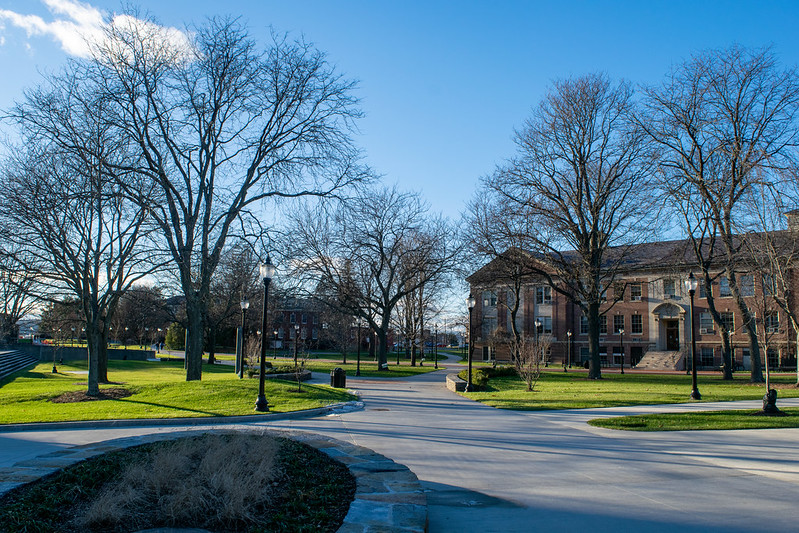Lee Badgett is a professor of Economics at the University of Massachusetts who focuses on economic inequality within the LGBTQ+ community.
Badgett grew up in the Chicago area, where she went to the University of Chicago and later attended graduate school at the University of California, Berkley. In addition to being a professor, Badgett is also a director at the Center for Public Policy and Administration.
Badgett served as a witness in several court cases before gay marriage was legalized in 2015. Badgett used her research to speak about the positive effects of same sex couples having the ability to legally marry instead of just having a civil union.
“There’s a lot of evidence to show from other countries where same sex couples get married. That book about marriage I wrote was partly based on research I did in the Netherlands which was the first country to allow same sex couples to marry,” Badgett said.
“When Gay People Get Married: What Happens When Societies Legalize Same-Sex Marriage,” one of Badgett’s books, speaks about same-sex marriage and the research which Badgett has conducted about the effects that same-sex marriage has and the societal, as well as economic, gains which comes out of it.
“It was much more about the symbolism of being allowed to marry because it’s symbolized a couple of things that symbolize fully equality, not second-class citizenship like with a civil union,” she added.
Besides just the societal benefits that same-sex marriage permits, Badgett researched the economic benefits which shows that there are only positives to same-sex marriages as people will spend money by catering the wedding to their desires and then paying for those services. “Everybody wins and nobody loses,” she said.
Badgetts gathers data in different ways. There is the side of what economists do and that started with studying race and sex discrimination. Economists look at survey data that represents that population, and in this field, comparing data for LGBTQ+ identifying people to non-LGBTQ+.
“For me, one of the fun things about being an academic is to say: Okay I have this question how am I going to answer it? And then try to be creative to find ways that will be rigorous and will be convincing to to other academics, but will also be able to answer those questions,” Badgett said.
Using data can be limiting as there are not many data sets that go far enough back in time. However, government data is also used to look at marriage and divorce patterns, and compares that between different countries and states. By looking at data qualitatively and quantitively, Badgett is able to get more insight in those gaps.
Badgett has noticed gaps not only in the jobs that LGBTQ+ people are able to get, but also racial minorities and people with special needs.
“We’re finding a lot of different barriers that people face that hold them from getting good jobs that might actually pay them enough so that they have a better standard of living,” Badgett said.
“There are different ways that we approach some of these issues. We have laws that make discrimination illegal in employment, housing, education, and other different kinds of contexts. It’s always a little hard to know how much those fight those laws have and they do seem to make a difference,” Badgett added.
Yet, over the years, programs that are supposed to help discrimination have gotten more restrictive. A possible solution, according to Badgett, is creating programming that is catered to LGBTQ+ people.
“Having programs that are specifically designed to create employment opportunities to help expand employment opportunities through training targeted at LGBT people and assistance finding jobs that are aware of the challenges that LGBT people face and who will help bridge gaps between applicants and employers,” Badgett said.
In her book, The Public Professor, Badgett writes about what she learned from being involved in public conversations and applying their research to be part of the discussion.
“Even people who aren’t professors can do that. It’s a book that I’m proud of because I think it’s something that the faculty at UMass do a lot of,” Badgett said.
By using facts and having open discussions, Badgett says that “it’s really a great opportunity anytime there’s a controversial issue”, to listen and respect other people’s opinions while also using evidence.
“We all have that opportunity to use that knowledge.”
Sofi Shlepakov can be reached at [email protected]. Follow her on Twitter @SShlepakov.



















